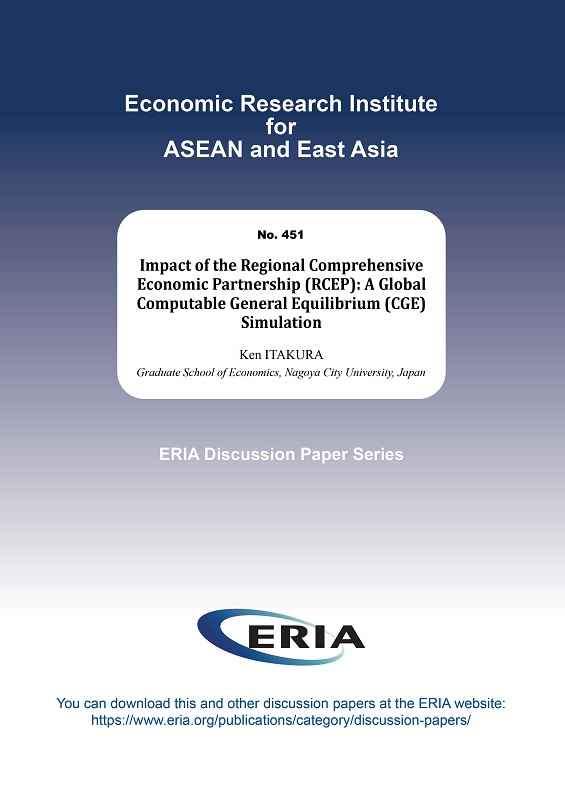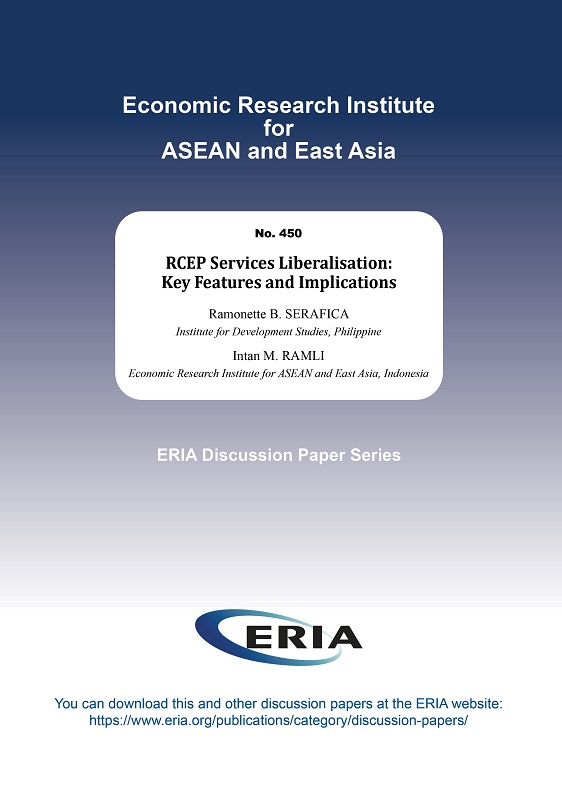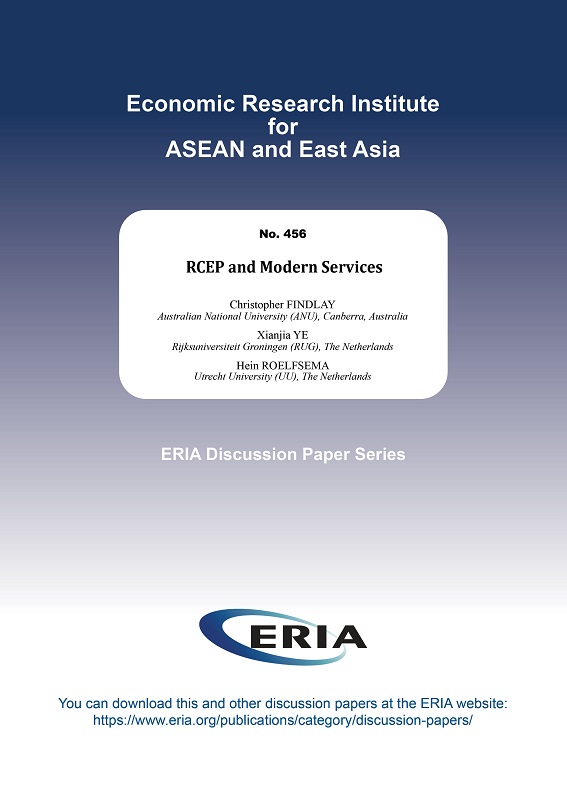Impact of the Regional Comprehensive Economic Partnership (RCEP): A Global Computable General Equilibrium (CGE) Simulation

Date:
21 October 2022Category:
ASEAN, Finance and Macroeconomy, Investment, Services, TradeType:
Discussion PapersTags:
RCEP, Trade, ASEAN, Investment, Services, CGEPrint Article:
This study estimates the potential economic effects of the Regional Comprehensive Economic Partnership (RCEP) by using a recursively dynamic computable general equilibrium (CGE) model, which incorporates the global supply chains (GSCs) structure, also referred as the global value chains (GVCs). The tariff reduction schedules for the RCEP agreement are incorporated in addition to other large FTAs, such as the CPTPP. Second, the structure of GSCs is included in the CGE model to take into account the importance of trade in intermediate goods and services. This study implements the RCEP simulation scenarios for tariff reductions, services trade liberalization, logistic improvements, and investment commitments. Results show that the real GDP of RCEP members increases by $675 billion in total, of which ASEAN grows by $160 billion.




